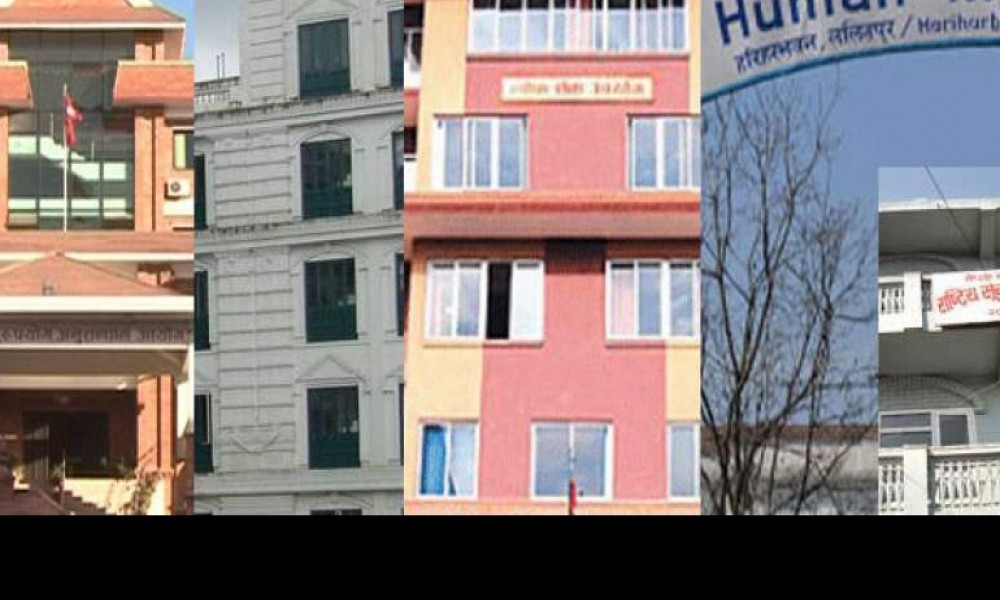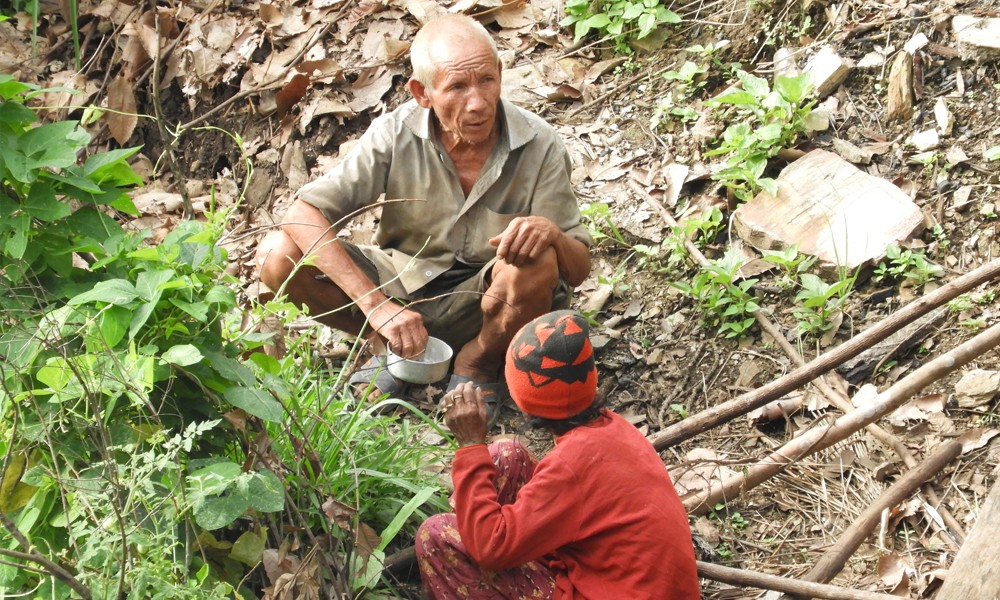After the second Constituent Assembly (CA) elections, the country is taking a regressive course. As political transition gets prolonged, achievements of the Jan Andolan II appear to be at stake. Institutionalization of achievements of the Jan Andolan seems unlikely.
Until the dissolution of the first CA, regressive forces were silent. However, emboldened by the results of the second CA elections, they are now rearing their heads. They are not openly speaking against federalism, inclusion, secularism, republicanism and other progressive political agendas. Is Nepal going to lose all it gained ? Given the attitude and activities of ruling political parties, it seems highly possible. In fact, they have already indicated it by ignoring marginalized and backward communities while fulfilling vacant posts of constitutional bodies.
After the Nepali Congress President Sushil Koirala became Prime Minister last year, the government has made political appointments in as many as five constitutional bodies. But, political appointments made by the Koirala government have not been inclusive.
No inclusion
After the Nepali Congress President Sushil Koirala became Prime Minister last year, the government has made political appointments in as many as five constitutional bodies. But, political appointments made by the Koirala government have not been inclusive.
The government has made provisions about inclusiveness. The Public Service Commission (PSC) has allocated 45 per cent of quotas for inclusion. But, the government has violated its own provisions. Not many representatives of indigenous communities have been appointed in vacant posts of constitutional bodies. Those who have been picked up as Indigenous Peoples do not truly represent indigenous communities. They are either Chhetri-Bahun women married to indigenous men or indigenous women married to Chhetri-Bahun men.
Ethnic composition of constitutional bodies
The Sushil Koirala government has appointed 27 individuals in various posts of constitutional bodies like National Planning Commission (NPC), National Human Rights Council (NHRC), Public Service Commission (PSC), Commission for Investigation of Abuse of Authority (CIAA) and Information Commission. Of these 27 appointees, only one, Brinda Handa, comes from indigenous communities. Of late, the government picked up four from Madhesi community and one woman from Muslim community. But, apart from these six appointees, all belong to so-called high-caste groups. The government has not maintained gender balance, either. Of the 27 appointees, only five are women.
Janjati and Muslim make up for only 3.70 per cent of the total appointees each, followed by Madhesis' 14.81 and Chhetris' 7.40 per cent. Bahuns make up for a huge 70 per cent. Representation of Dalits is nil.
Janjati and Muslim make up for only 3.70 per cent of the total appointees each, followed by Madhesis' 14.81 and Chhetris' 7.40 per cent. Bahuns make up for a huge 70 per cent. Representation of Dalits is nil.
Bahuns constitute only 12 per cent of the total population but get the largest share (70 per cent) in constitutional bodies. Janjati and Madhesi get less than 4 per cent share despite constituting 35 and 32 per cent of the population respectively. Dalits constitute 13 per cent of the population but do not get a single post. Chhetris also do not fare well. Despite constituting 17 per cent of the population, they get less than 8 per cent share.
Trick in appointment
By appointing Dr Bimala Rai and Dr Sabitri Gurung, the government apparently tried to make it look like it really cares for inclusion. But, neither Dr Rai or Dr Gurung represent indigenous communities. They belong to so-called high-caste groups but bear Janjati surnames by marring indigenous men. But, Bindra Hada remained Hada. She did not change her surname even after marriage.
Dr Bimala Rai, who hails from Bhojpur district, is a Poudel. She was married to a Rai. But, in her citizenship certificate, her surname is still Poudel. The official website of the NPC says she is Dr Bimala Rai Poudel. But, when the government published names of new appointees in the NPC, she was mentioned as Dr Bimala Rai. It was a clever move to look like political appointments in the NPC are inclusive.
Similarly, Dr Sabitri Gurung, who was appointed as a CIAA commissioner, is a Sharma. She became Gurung only after marrying a Gurung. On the other hand, Bindra Hada is married to a Bahun male. But, she did not change her surname. And the government described her as a Hada.
NC-UML backtrack from inclusion
Before differences over the new constitution's contents increased to this degree, the NC-UML had proposed in the CA's Constitutional Political Dialogue and Consensus Committee (CPDCC) against provision of 'proportional inclusive participation' in the new constitution. The UCPN (Maoist) and Madhesi are dead against the NC-UML proposal.
A committee formed by the government 15 years ago to make recommendations for administrative reforms had also spoken against inclusion. Arguing that inclusion policy led to intake of less efficient civil servants, the committee stressed on merit for administrative reforms. On recommendations of this committee, the PSC scrapped provision that would allow Indigenous Peoples to compete for government jobs without passing entrance exams.
Aggressive Madhesi, passive Janajati
In recent appointments in constitutional bodies, women and Madhesi have got bigger share than Indigenous Peoples. There could be two reasons. First, the ruling parties are not against inclusion of women as much as they are against inclusion of Indigenous Peoples. After the Madhes movement, Madhesi parties have emerged as a strong political force. They can raise their voices on the streets and in the parliament. Even within the NC and the UML, the voice of Madhesi is strong. This is not the case with Adivasi Janjati. Adivasi Janjati are weak in the house. Most of them fear being labeled as communal if they raise their voice.
Report written by Rajesh Chamling Rai
Courtesy: esamata.com









